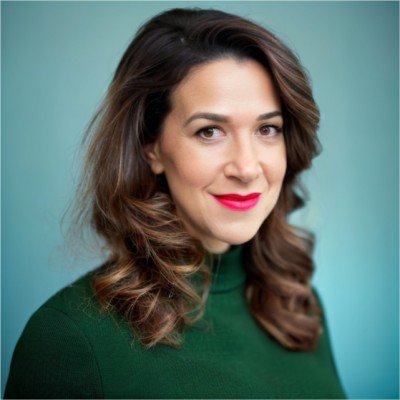Jen Wirt, Founder of Coral Care
Name: Jen Wirt
Founder: Coral Care
Who is Jen Wirt?
Jen Wirt, Coral Care's CEO and Founder, is a seasoned engineer turned product manager turned CEO known for her drive to address intricate challenges. With a strong engineering and product background, she's brought a methodical approach to roles at Samsung, Bose, Weight Watchers, and as a founding team member of three startups. Dedicated to building digital platforms in consumer tech and healthcare, Jen has facilitated over 11,000 virtual medical consults, impacting over 4 million users. She founded Coral Care because she experienced firsthand the challenges millions of parents face: getting timely, affordable care for their children at a critical age.
In less than three sentences tell us about your company and what you do.
Coral Care connects parents with trusted, highly experienced speech-language pathologists, physical therapists, and occupational therapists who come to the child’s home for convenient and comfortable sessions. For providers, transitioning to private practice is now simpler with our digital tools, unlocking the ability to find local clients and efficiently manage their practice.
What does BEING a FoundHer mean to you?
Being a FoundHer means a chance to speak to other female entrepreneurs and women, evaluating if entrepreneurship is right for them. There are so many reasons not to start a business. It's easy to pass up an opportunity, overlook an idea, and talk yourself down. This community is about building women up and hearing stories that can encourage others to take a chance on themselves and build something new that brings value to so many others.
I am also blown away by Lindsay's courage in standing up to antisemitism over these past two months. I am a Jewish woman raising Jewish kids and running a business with several Jewish and Israeli team members. For the first time in my life, I question if it's safe to "out myself" as a Jew. Then I hear from you and realize that we have to speak up and show that we exist and aren't going anywhere.
How do you support other female founders and women in business?
My company, Coral Care, connects parents with developmental therapists. Nearly all of the 500k US-based pediatric providers (SLPs, OTs, and PTs) are underutilized and underpaid. The average hourly wage for pediatric therapists is $35. Starting their own private practice is challenging due to startup costs, marketing complexities, and heavy administrative load. We make it possible for these providers to build and grow their own private practice and earn more income doing the work that they love. What's more, is that over 90% of pediatric providers in these specialties are female. It's core to my company's mission to help these women earn meaningful income on their own terms.
At what point did you make your company a full time gig? How did you know the time was right?
I've had several ideas over the years. Some seemed viable, but the time wasn't right for me. When I came up with the idea for Coral Care, the timing was totally right. My youngest daughter was finishing up preschool. We had only 6 more months of paying for childcare until kindergarten. Financially, it was a good time to take the risk. In April, I left my job at another startup to pursue Coral Care. For me, the decision was largely based on having the right idea at a time when I wouldn't put my family in financial risk. It was also the right time because with two kids in school all day, I could still be mom while I was building something big.
What lesson or skill did you take with you from a prior job to help you succeed in your role today?
In my prior roles, I managed team members and key stakeholders from various functions. It was always my role to share the vision and keep everything moving forward toward a goal. I like to think that my superpower is harnessing many moving parts and pulling them together to make something real. That skill is crucial as a CEO building something new. It's also a skill I utilize in my other big role - mom.
Let’s talk social media—who handles it for your company (you, an internal team member, an outsourced solution?) and what is the secret to making it successful? What is the biggest challenge?
Coral Care's social media is managed by a woman named Nitzan. Her backstory is really interesting. She was a teacher who left the profession to be present for her kids. During her time as a stay-at-home mom, she started a paper flower business on Etsy. To drive sales, she started an Instagram account, where she quickly amassed a large following. That took her into content creation and micro-influencer roles and ultimately to Coral Care, where she is a natural at creating content that resonates strongly with parents and establishes our company as a trusted place for developmental care.
Our secret to success is authenticity, content that contributes to the conversations parents are already having about developmental needs, and establishes our role as an expert in speech, occupational, and physical therapy. The biggest challenge is creating enough content and making sure our content is additive for parents and not repetitive.
How did you land your first client?
We work closely with local parent groups and attended a fall festival for one group. We had a table set up with a craft and talked to every parent who came by. I believe one of those parents was our first customer.
What is something you do differently from the industry standard?
We aren't necessarily trying to replace someone's full-time job. Most of our providers have jobs within school districts. Our schools need them there. But the providers need more money and a way to earn it flexibly. We recruit school-based providers and allow them to moonlight with Coral Care. By working just 10 hours per week with Coral Care, they can earn an extra $43k per year.
Did you raise capital? What was the process and avenue you chose to take?
Absolutely! I secured a small investment from a venture studio this spring and recently wrapped up my preseed round, with participation from a few venture funds and numerous angels. The journey was a bit of a marathon. Over six months, I sat down with 150+ investors, facing numerous rejections. Despite hearing countless no's from folks who only caught a snippet of my pitch, I pressed on, driven by my passion for our mission. I knew in today's economy, it might take 100 no's to reach that first yes.
What would you do differently if you were starting your business today?
I've got about a year under my belt, so my hindsight isn't crystal clear yet. If I were kicking off today, my strategy would be all about earning revenue with real customers without building much. In the past, preseed rounds were often secured pre-revenue, but now, in this economic landscape, hitting revenue early is key. I've heard from fellow founders who kick-started their ventures with just spreadsheets. We were scrappy, too, launching without our tech fully ready, but I do wish I had reached that stage a few months earlier.
Do you want to share your story and advice with the Dear FoundHer… community? CLICK HERE to submit your information.
Follow us on Instagram @dearfoundher and join our Facebook community for more conversation.
Make sure you tune in to Dear FoundHer… for new episodes every Tuesday and Thursday.


